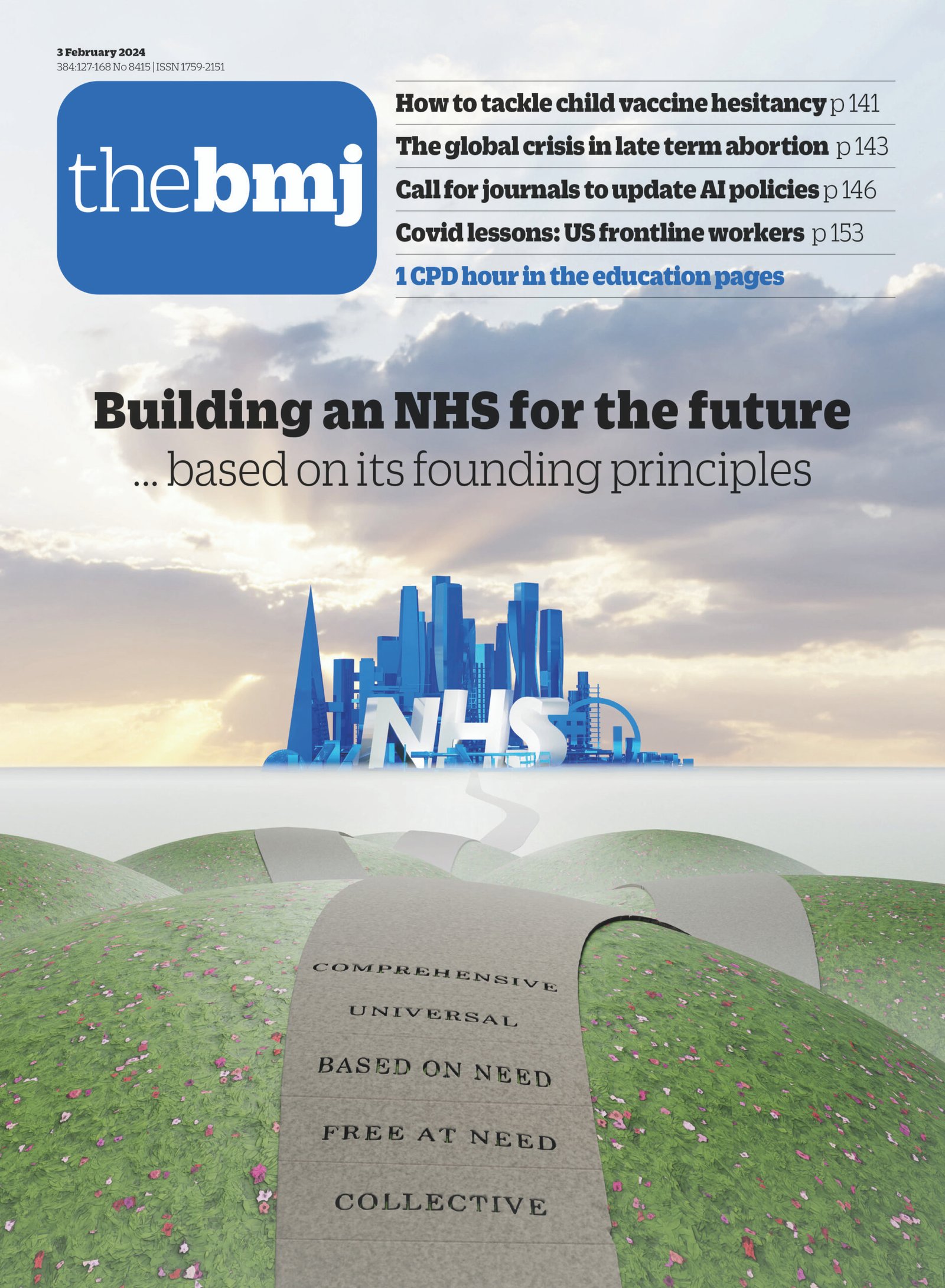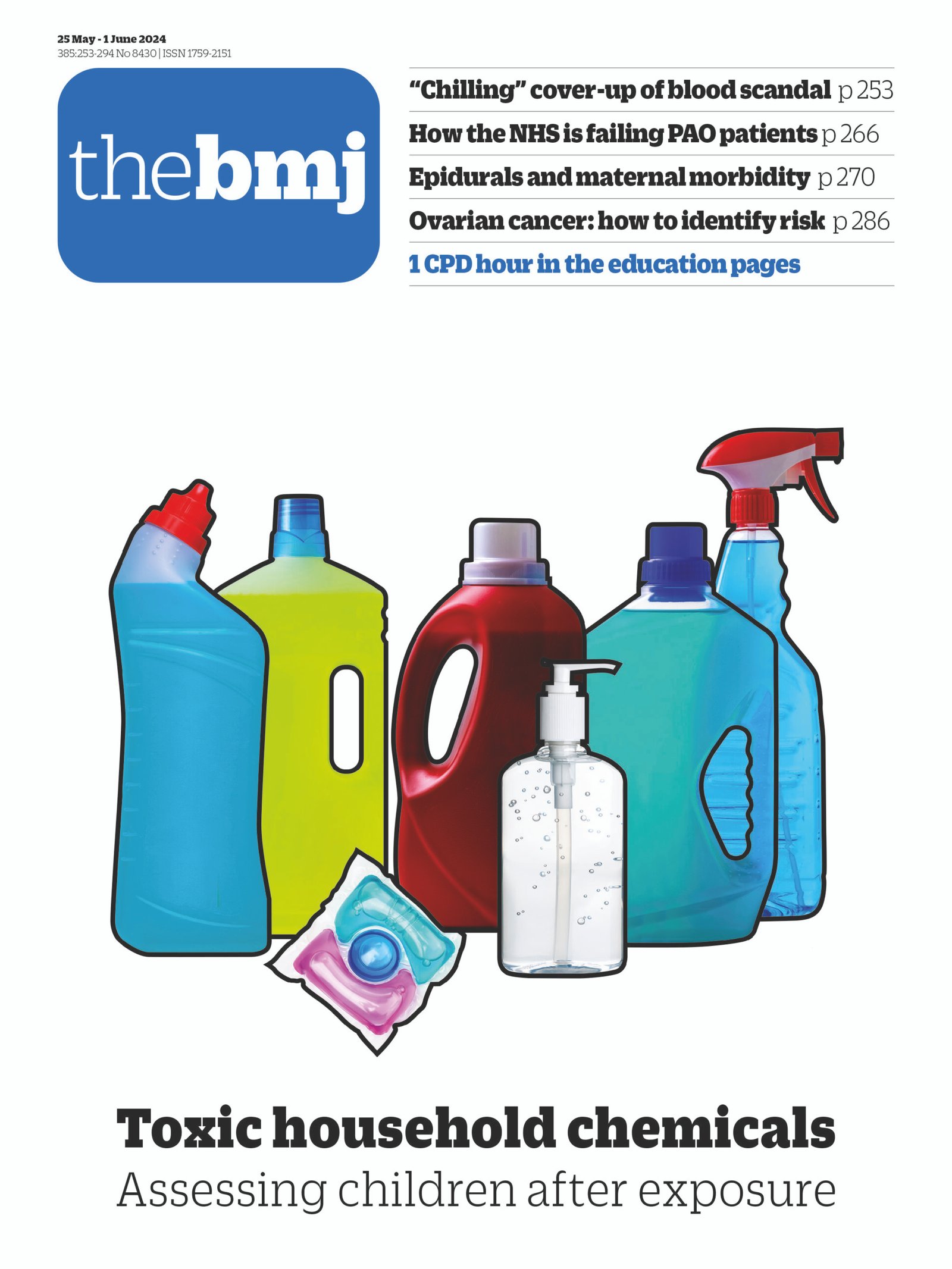As the United States enters an election year with huge international stakes, it is easy to be pessimistic that the value of continued US leadership in global health, including pandemic preparedness, will be the subject of prominent debate in the 2024 elections. Geopolitical crises in Ukraine, Israel-Palestine, and China-Taiwan dominate attention and policy. Climate, debt overhang, food insecurity, and humanitarian crises compete for attention. The flagship President’s Emergency Plan for AIDS Relief (PEPFAR) has lost prominence. President Biden has said little on the campaign trail about the value of global health to US national interests. If Donald Trump is the Republican candidate, he will certainly say little positive about global health. And, as the BMJ series on lessons from the US covid response lays out (http://bmj.com/collections/us-covid-series), covid-19 exposed and aggravated pre-existing systemic and structural weaknesses in healthcare and public health.
There is little doubt that US performance during covid-19, along with that of most other powerful, high income countries, was dominated by sovereign self-interest, alienated the global south, and raised doubts about the sustainability and reliability of the global north during crises.
Pessimism and awareness of the damage to the US’s standing, though realistic and accurate, miss a vital opportunity. There is considerable reason to be hopeful. The US contributed more than $19bn (£15bn; €17bn) to the global covid-19 response, far more than any other high income country.1 US global health funding remains steady at more than $12bn a year.2 Moreover, much progress in global health is unfolding, grounded in enduring political support across partisan party lines. Global health remains inherently a powerful and positive campaign issue and should not be overlooked. Indeed, it deserves a prominent place in our national debates in 2024. The steady progress underway, the deep historical legacy of US achievements—most notably PEPFAR—the remarkable continuity of bipartisanship, and the obvious imperative to sustain US leadership in global health together form a compelling narrative, a vision that can provide hope in an election cycle filled with despair.34 Americans and other partners who care deeply about the US role in global health should pick up the mantle.

Bipartisan consensus
For two decades, a durable bipartisan consensus has been the foundation of US leadership in global health, grounded in the knowledge that long term US investments in infectious diseases—HIV/AIDS, malaria, tuberculosis, and polio—along with women’s and family health and basic primary care advance America’s ethical values and its national security. Bipartisanship is certainly under stress: witness the surprising difficulties in 2023 in winning a five year PEPFAR reauthorisation in Congress.5678 Yet it would be a mistake to believe that it has disappeared. Beneath our political rancor, bipartisanship lives on.
A talented new generation of senior leaders is now in place across the administration—the majority women, for the first time—who are not burdened by the covid wars, who are builders and reformers, determined to strike new paths that attract broad political support.4 It is early days, but they are beginning to generate excitement and concrete results.
In July 2023, Mandy Cohen became the director of the US Centers for Disease Control and Prevention (CDC), the nation’s lead public health agency, with the mandate to build state and local public health capabilities through providing quality, timely guidance, technical expertise, and leadership in both emergency health security preparedness and the full range of other non-emergency preventable health threats that can fuel serious disease.9 She has systematically embraced a reform agenda that aims to bridge political lines, within Congress and across the nation, and that includes raising the CDC’s global role.10111213 She has made headway in rebuilding trust and confidence among red and blue state and municipal leaders and in reorienting the public to a winter respiratory viral season including threats from covid, respiratory syncytial virus, and flu.14 Recent international travel is expanding CDC’s global partnerships, particularly in Africa and Asia, aided by the creation of four, and soon six, CDC regional offices.15
Monica Bertagnolli, appointed head of the National Institutes of Health in 2023, is pressing a vision emphasizing the funding agency’s critical global role promoting research and development abroad, as well as building international scientific research partnerships.161718 At the White House Office of Science and Technology Policy, which leads on the biggest scientific policy challenges, its new head, Arati Prabhakar, is defining US policy approaches to artificial intelligence and health, the future of biotechnology, and how to ensure biosafety and biosecurity.192021
Positive signs
As we begin 2024, optimism can be drawn from new institutional capacity supported by bipartisan Congressional legislative action. The state department, which is responsible for US diplomacy, has established a Bureau of Global Health Security and Diplomacy to bring both PEFPAR and health security programs and policies under one roof.2223 A US special envoy represents the American government and public at World Health Organization pandemic treaty negotiations, helping to adjudicate the heightened norms and expectations of equity and access in pandemic preparedness and its tools.2425 These activities and the US leadership will be integral to forging new partnerships with global south governments and institutions and correcting for the decline in the global south’s trust and confidence in wealthy countries.
A White House Office of Pandemic Preparedness and Response Policy was established in July 2023 under the leadership of the highly respected Major General Paul Friedrichs, to provide a new “mission control” and bring greater coherence to protecting Americans against future biothreats from all sources.2627 The US Agency for International Development, the country’s largest funder of international development programs, has strengthened the capacities of its Health Bureau focused on primary care, vaccine delivery, emergency response, and women’s and family health under the leadership of assistant administrator for global health, Atul Gawande.282930
America has not lost its unique ability to drive scientific discovery and new technologies, through public-private partnerships and bipartisan support. That model gave us antiretroviral therapies in the mid-1990s to make HIV/AIDS a manageable chronic disease, saving tens of millions of lives. It also gave us Operation Warp Speed, under President Trump, which in record time generated the mRNA vaccines and led to the current US effort, backed by $5bn, to create the next generation of tools to battle future coronavirus threats.3132 On another front, the eradication of wild polio is close, after a 35 year campaign, that rests on a partnership among the private sector, the US, WHO, philanthropies, and national governments.33
Americans who care about global health should steel themselves for a difficult 2024. But while this election season is sure to bring turbulent political waters and rancor, advocates, researchers, and health leaders should be resolute and committed to campaign for visible and sustained US leadership in global health. The covid-19 pandemic produced enormous challenges but it has opened opportunities and reminded us of the full range of global health work that remains to be done. Progress continues on many fronts. A new generation of senior US leadership has emerged that brings new experiences, new energy, and new thinking about how to sustain progress. At the same time, the US is building additional institutional muscle. As a nation, we are well on our way to generating new technological tools that will save and extend lives. While on the surface, political toxicity and division may reign, bipartisanship, on which US global health leadership rests, lives on.
Footnotes
-
Competing interests: We have read and understood BMJ policy on declaration of interests and have declare that HC was appointed to the director of the CDC’s advisory committee in December 2023.
-
Provenance and peer review: Commissioned; not externally peer reviewed.
-
This article is part of a series commissioned by The BMJ (http://bmj.com/collections/us-covid-series). The guest editors were Ana Diez Roux and Gavin Yamey and the lead editor for The BMJ was Jocalyn Clark.










